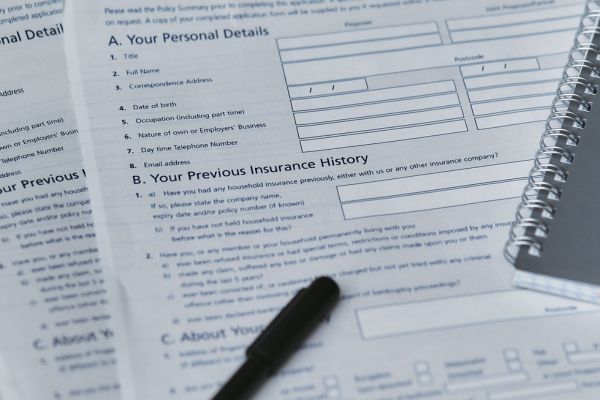In the dynamic landscape of professional careers, the prospect of being both a real estate agent and an insurance agent is an intriguing avenue for individuals seeking diverse income streams and professional challenges. This article aims to answer the question: Can I Be A Real Estate Agent And Insurance Agent? and provide insights into the potential for combining these two professions.
Can I Be A Real Estate Agent And Insurance Agent?
Yes, you can work as an insurance agent and a realtor. The state in which you intend to conduct business will require you to obtain a license. Realtors assist clients in the purchase, sale, and rental of real estate.
Agents for insurance companies offer policies that shield clients from monetary losses brought on by theft, fires, accidents, and other calamities.
An insurance agent: what is it?
A professional who helps with the insurance application process is known as an insurance agent. They might specialize in one kind of insurance, like life, health, or auto insurance, or they might help clients buy several kinds. They could work for themselves and offer their services to a wide range of professionals and businesses, or they might be a full-time employee of an insurance company.
A real estate agent: what is it?
An expert who speeds up the process of helping a person or company locate and purchase real estate is a real estate agent. An agent may work for a business that provides clients, office space, and other crucial resources, or they may work for themselves. They may focus on a particular kind of property, like residential or commercial spaces, or act as a buyer’s or seller’s agent.
Understanding Real Estate and Insurance
Let’s quickly review the differences between the roles of an insurance agent and a real estate agent before you consider the possibility of balancing both careers at the same time.
Purchasing, selling, and leasing real estate includes holding residential, commercial, and vacant properties. Real estate brokers assist customers in purchasing or selling real estate by serving as go-betweens throughout the transaction. They offer their expertise in negotiations, market trends, and property valuation. They ensure that you receive the most ideal choice that not only fits your budget but also gives you the property that meets all of your requirements!
One of Manhattan’s influential people revealed, “Always be prepared, on time, humble & well dressed.” This is the secret to success in real estate.
Contrarily, the focus of insurance is on protection and risk management. Insurance agents assist people and organizations in selecting appropriate insurance plans to protect their possessions, liabilities, well-being, and more. They determine the needs of their clients, outline available policies, and assist with the application process for insurance.
Similarities between Real Estate and Insurance
Despite being separate industries, real estate and insurance share a number of noteworthy parallels.
Client Interaction: Without a great deal of client interaction, neither profession can be fully realized. Strong interpersonal skills are crucial, whether you’re helping clients choose the appropriate insurance plan or locate their ideal home. You could set yourself up for problems if you don’t know how to bargain modestly!
Commission-Based Income: Upon completion of a successful transaction, real estate and insurance agents frequently receive commission payments. Their potential income increases with the number of clients they serve and the quality of their work.
Flexibility: Both professions allow for a certain amount of schedule and working hour flexibility. Agents in the insurance and real estate industries frequently have the flexibility to schedule meetings with clients and appointment.
Differences between Real Estate and Insurance
Although there are some parallels, it’s critical to understand the main distinctions between working as an insurance agent and a real estate agent:
Product/Service Nature: Insurance covers intangible policies, while real estate deals with tangible properties. Whereas insurance agents concentrate on risk management and policy sales, real estate agents concentrate on facilitating real estate transactions.
License Requirements: In order to legally conduct business, real estate and insurance agents need separate licenses. Every state has a different licensing procedure and set of requirements, so it’s critical to learn about and abide by local laws.
Lead generation and sales cycles: Real estate and insurance have quite different sales cycles. While selling an insurance policy can happen faster, real estate transactions frequently take longer. Strategies for generating leads may also vary depending on the products and target market.
How Can I Become an Insurance and Real Estate Agent?
Yes, the insurance and real estate industries can both be very successful, but they also each have specific requirements. Let us explore each procedure.
Becoming a Real Estate Agent
Investigate Licensing Requirements for Real Estate Agents: The requirements to become a real estate agent can vary based on where you live. Typically, you must be a legal resident of the United States, be between the ages of 18 and 19, and possess a high school diploma or its equivalent.
Finish Your Pre-Licensing Courses: Enroll at a recognized institution in a pre-licensing course. You will gain a fundamental understanding of real estate laws, practices, and ethics from this.
Pass the State Real Estate Exam: After completing your coursework, you must pass a state examination. This will assess your understanding of real estate laws in both the federal and state levels.
Become a Broker in Real Estate: Typically, newly licensed agents spend some time working for a brokerage. Locate a respectable one nearby and become an associate.
Develop Your Network and Portfolio: Start attracting clients. Become involved in real estate groups, go to networking functions, and think about finding a mentor to help you along the way.
Becoming an Insurance Agent
Select a Specialty: The insurance industry is very large. Choose whether you want to concentrate on health, property, life, or other insurance.
Complete Prerequisites for Licensure: Like real estate, you’ll probably have to enroll in a pre-licensing course. Your state and the kind of insurance you want to specialize in will determine the specifics.
Become licensed to practice insurance in the state: Upon finishing your education, you will have to pass a state examination. This exam will assess your understanding of insurance laws, rules, and procedures.
How to Obtain a State License: You can apply for an insurance license in your state after passing the exam. There may be more documentation and background checks.
Affiliate with an Insurance Company: When you first start out, you should consider aligning yourself with an insurance company, much like when you join a real estate brokerage. By doing this, you’ll be able to access their goods and services and provide them to customers.
Conclusion
The article discusses “Can i be a Real Estate Agent and Insurance Agent?”. It is possible to be both, but it may not be the best idea to try to do both at the same time. If you are thinking about becoming a realtor and an insurance agent, it is important to think about how you will juggle your two careers.
You will need to be organized and have a good support system in place in order to succeed at both jobs.
FAQs
1. Can You Make a Living As an Insurance Agent?
Yes, you can make a living as an insurance agent. In fact, many insurance agents are very successful in their careers. However, it takes hard work and dedication to become a successful insurance agent.
2. Can I legally hold licenses in both real estate and insurance simultaneously?
Yes, it’s possible, but legal considerations and state regulations must be carefully reviewed.
3. How can I manage my time effectively when juggling dual roles?
Time management skills, prioritization, and efficient scheduling are key to balancing both professions.
4. Are there educational programs specifically designed for dual careers in real estate and insurance?
Yes, several programs cater to individuals seeking comprehensive training for both professions.
5. What are the income potential and financial considerations of pursuing a dual career?
Income potential varies, and understanding commission structures and market dynamics is crucial for financial planning






